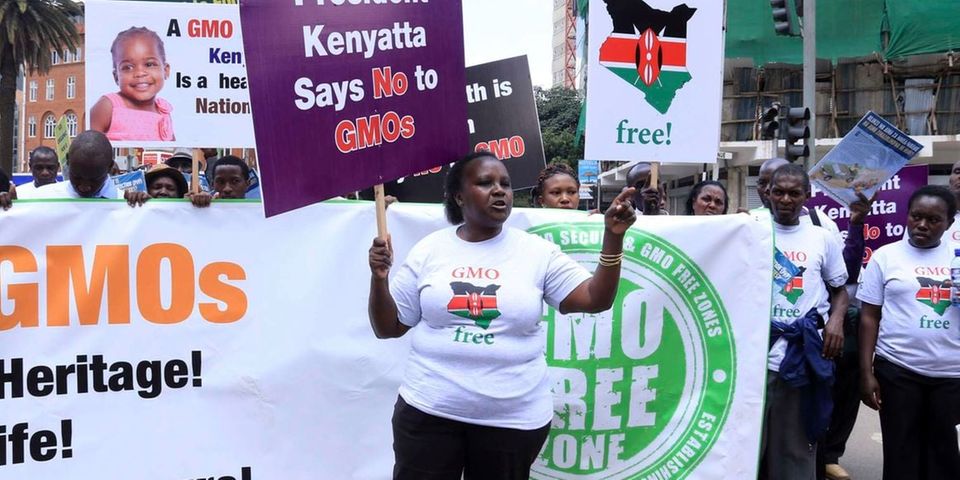Prime
Farmers urged to focus on agro-ecology

Nsaba Buturo to fight against GMOs saying they are destroying African seed and food systems. Photo | George Katongole
What you need to know:
- According to the Global Alliance for the Future of Food, resilience is key as increased droughts, heatwaves and storms are already hitting food production and yields, and risking mass crop failures.
The changing patterns of weather and the global issues of climatic changes have troubled farmers for the past years consequently shaking the food systems. This has not been helped by the unending war between Ukraine and Russia.
According to the Global Alliance for the Future of Food, resilience is key as increased droughts, heatwaves and storms are already hitting food production and yields, and risking mass crop failures.
Prolonged and repeated droughts have forced farmers to intensify the use of synthetic fertilisers to boost crop yields, leading to pollution of water sources and loss of soil nutrients according to Million Belay, Alliance for Food Sovereignty in Africa’s general coordinator. Accordingly, food systems are facing threats of declining yields.
Why agro-ecology
By adopting agro-ecology, food activists say there is hope during this difficult stretch.
Agro-ecology describes agricultural systems that increase agricultural yields while reducing environmental degradation through practices such as organic farming.
Scientific evidence demonstrates that agroecology increases climate resilience, according to a study by FAO published in 2020. “Success factors for this are that agroecology builds on ecological principles, in particular on biodiversity, overall diversity and healthy soils, along with social aspects, in particular on the co-creation and sharing of knowledge and fostering traditions.”
Meeting legislators from Uganda, the East African Legislative assembly (EALA) and the Pan-African Parliament at the Golf Course Hotel in Kampala last week, Belay briefed parliamentarians about policy research progress, saying the policy is intended to ensure consumption of healthy and culturally appropriated food supported by favourable food policies at country, regional and continental level.
Sustainable practices
Belay says that agro-ecology encourages sustainable practices such as agroforestry which in turn help in preventing soil erosion and creating microclimates, among other benefits.
These nature-based agroforestry systems also create an environment attractive to honeybees, birds, wildlife and microorganisms.
Battle to preserve traditional food
AFSA has asked the Pan African Parliament, EALA and Ugandan legislators to facilitate African Union’s approval of a proposal to develop the African Food Policy. Belay says there is no food policy for Africa.
He says the need for new policy responses is made all the more pressing by the multiple crises now afflicting food systems in Africa and around the world, from burgeoning obesity to environmental degradation and pressures on farmers’ livelihoods.
“Our food systems are the by-product of political compromises struck between competing interests in various fora. The lack of a coherent food policy means that accountability is hugely dispersed,” he says.
The ‘Common Food Policy’ roadmap that emerges will align various policies and incentives with the goal of delivering sustainable food systems, ensuring that healthy diets, resilient ecosystems and decent livelihoods for farmers and food workers are key objectives.
AFSA rejects the continued reliance on imported farm inputs, especially chemical fertilisers, pesticides, and hybrid and Genetically Modified Organism (GMO) seeds to raise food production.
Belay says that those advocating for increased use of chemical fertilisers are misleading the farmers.
“Even though it may serve as a short-term strategy, in the end it pollutes the soil, making farmers depend on chemical inputs, endangering the health of farmers and consumers, robbing people of their right to healthy, culturally appropriate and nutritious food and increasing vulnerability to climate change,” he says.
Belay explains that the authentic African solution is a commitment to agro-ecology and food sovereignty; the right to healthy and culturally appropriate food produced through ecologically sound and sustainable methods and the right to define one’s own foods and agriculture systems. This, he says, will help overcome the triple burden of hunger, micronutrient deficiency and obesity which leads to non-communicable diseases.
Rukiga Woman MP Caroline Kamusiime Muhwezi was emphatic in her plea, “AFSA are opening our eyes. Not long ago farmers used to control their seeds but our seed system has been greatly eroded. Farmers have to buy seed every season and cannot use them again, which puts a lot of pressure on the production systems. As leaders we need to tell our people about sustainable production by embracing traditional seeds and stop using chemical fertilisers,” says Kamusiime. In response, the chairperson of Uganda representatives at Pan-African Parliament, Felix Okot Ogong, pledged to collaborate with AFSA by developing model laws on food.
Anti GMO Bill
Meanwhile, former Ethics and Integrity minister, Dr James Nsaba Buturo has vowed to push for his private members’ bill on GMOs into law. He says the primary reason for GMO existence is to seek extinction of indigenous seeds and foods.
He noted that if this comes into existence, all African countries will be depending on the western world. Nsaba Buturo also alleges that the western world is pushing for GMOs to control the African population through the food they eat.
AFSA brings together 200 million small-scale farmers, pastoralists, fishermen, indigenous people, faith communities and consumers among others.
Target
AFSA targets smallholder and family farmers because they produce more than 70 per cent of the world’s food with less than one-third of the agricultural land and resources. By this measure, they embody an efficient, environmentally sound, and socially just approach unlike industrial agriculture which embraces chemical-intensive monoculture farming systems.




